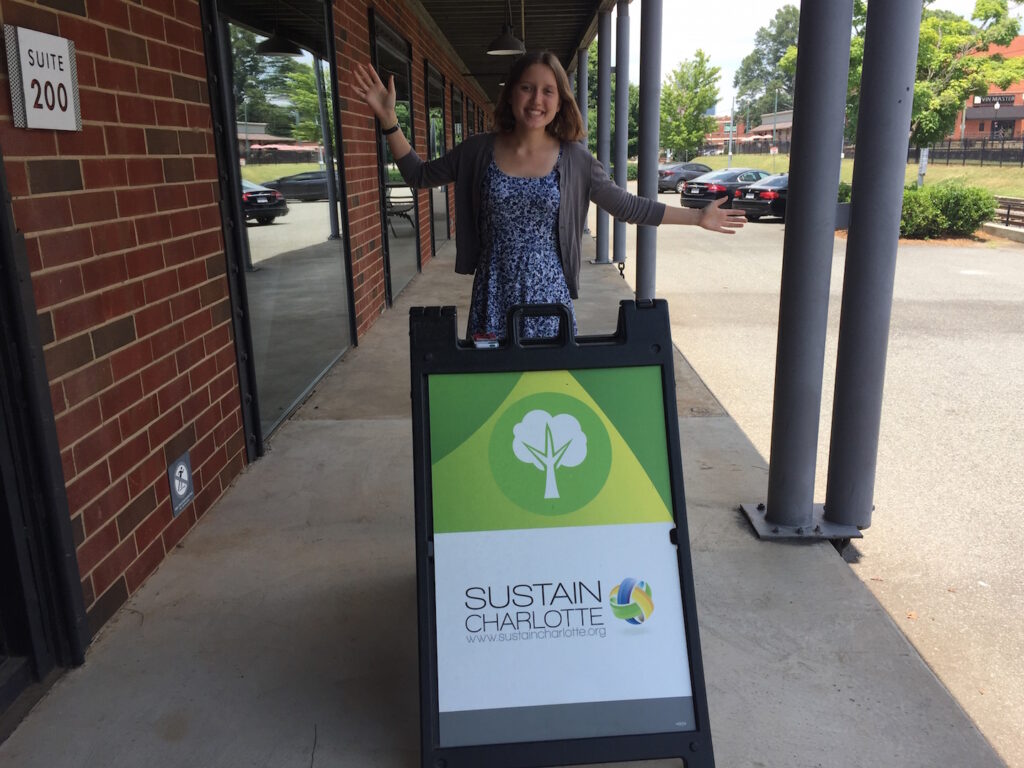Meet the Intern: Margo Parker
My name is Margo Parker, and this fall I’ll be a sophomore at Davidson College. I moved to North Carolina a year ago from Gainesville, Florida, where I lived with my parents and two big, goofy dogs. At Davidson, I plan on majoring in English and minoring in Environmental Studies, and I hope to study abroad somewhere where I can practice either Spanish or Arabic. In my free time, I enjoy reading, long-distance running, binge-watching various Netflix Originals, and cooking for my friends and family.
My main responsibility this summer will be organizing Sustain Charlotte’s Youth Transportation Fair, with the YouthQuake Summer Camp and other community partners. I’ll also be interviewing residents of Washington Heights, Lincoln Heights, and West Boulevard for our Senior Mobility Project, and assisting my supervisor, Meg Fencil, with her advocacy as a member of the Vision Zero Task Force.

As a somewhat recent Charlotte transplant, my understanding of the city’s sustainability challenges has progressed on a parallel course with my personal knowledge of the area. For me, as a currently car-free college student, getting to know a new neighborhood means traveling there by bus or light rail. I’ve really grown to appreciate public transit, not just for environmental or urban planning reasons, but for introducing me to people I would never have met on campus. Talking to community members, through the Sustainability Summit and the Senior Mobility Project especially, has led me to see advocacy as an act of compassion, rather than ideology. A significant driving force behind real, sustainable change is the love that people have for their neighborhood, and for the health and happiness of their neighbors.
To other young people trying to be more sustainable, I offer this: Identify the groups and organizations that depend on your support, and hold them accountable. Sustainability offices on college campuses are always looking for more student involvement, and can be a great resource when negotiating with the administration. In many cases, local businesses will re-evaluate their practices if enough customers complain, so be conscious and consistent about where you spend your money. Lastly, try to connect with others in your community about sustainability issues, even if you don’t always agree. Familiarizing yourself with both sides of the discourse only strengthens your own convictions, as well as your ability to defend them.
Thanks for reading!
As a nonprofit, community support is essential for us to keep doing what we do — including providing free articles like this. If you found this article helpful, please consider supporting Sustain Charlotte.
Want to stay in the loop? Subscribe to our weekly newsletter and follow us on Instagram, Facebook, and Twitter.
